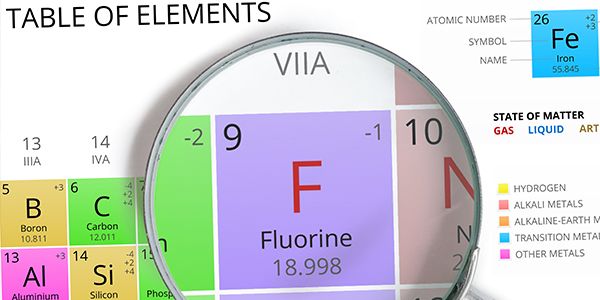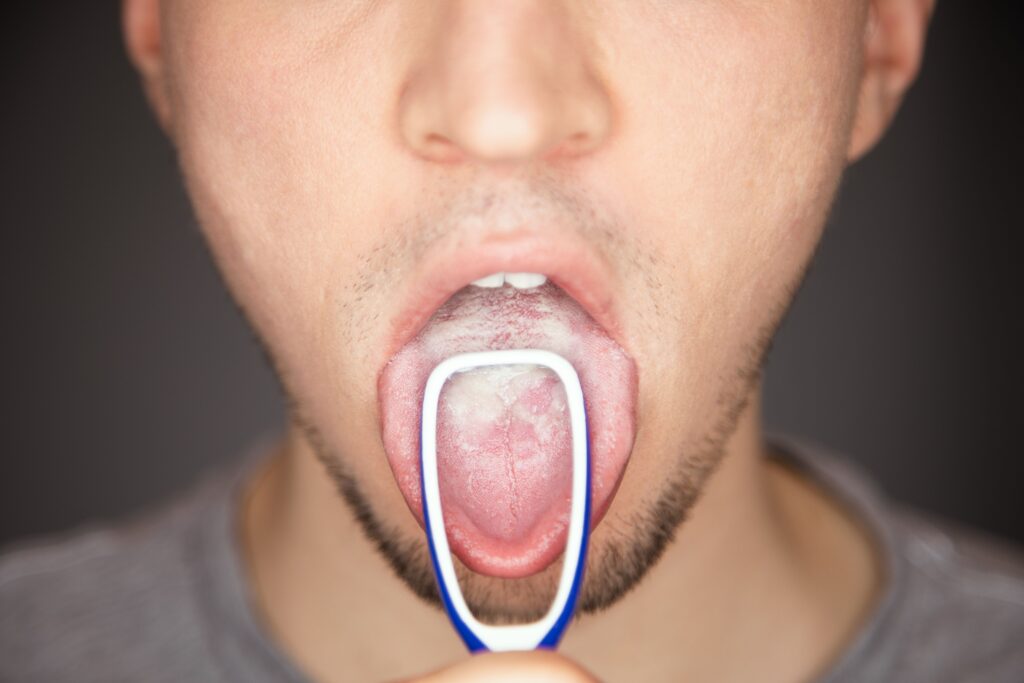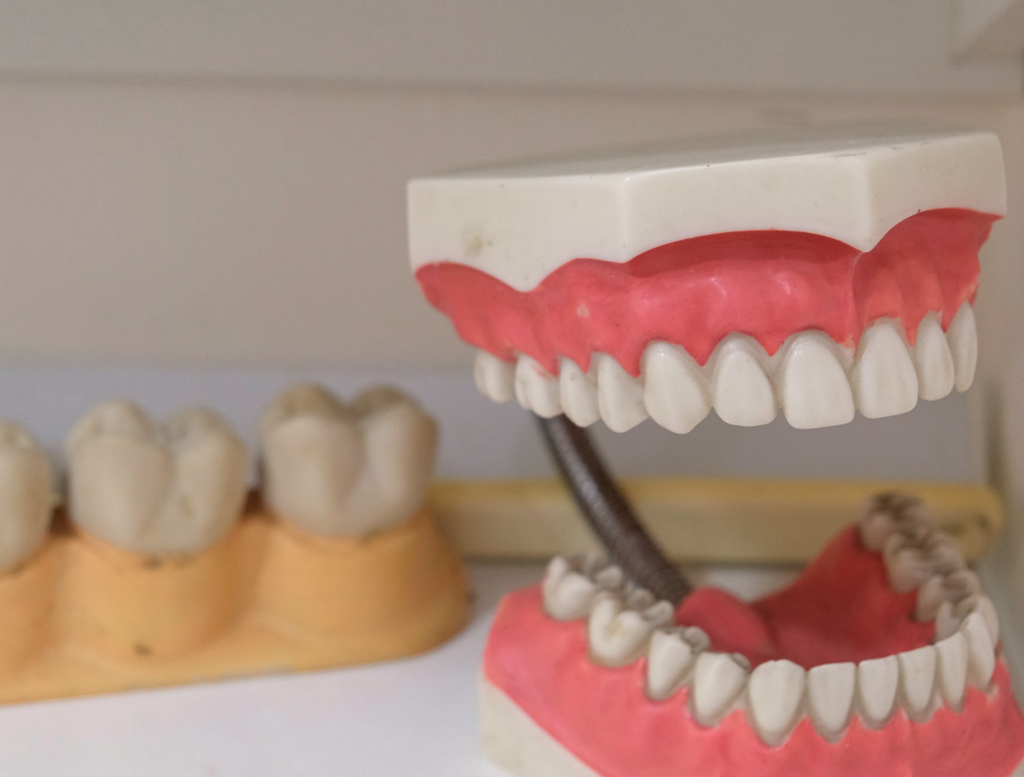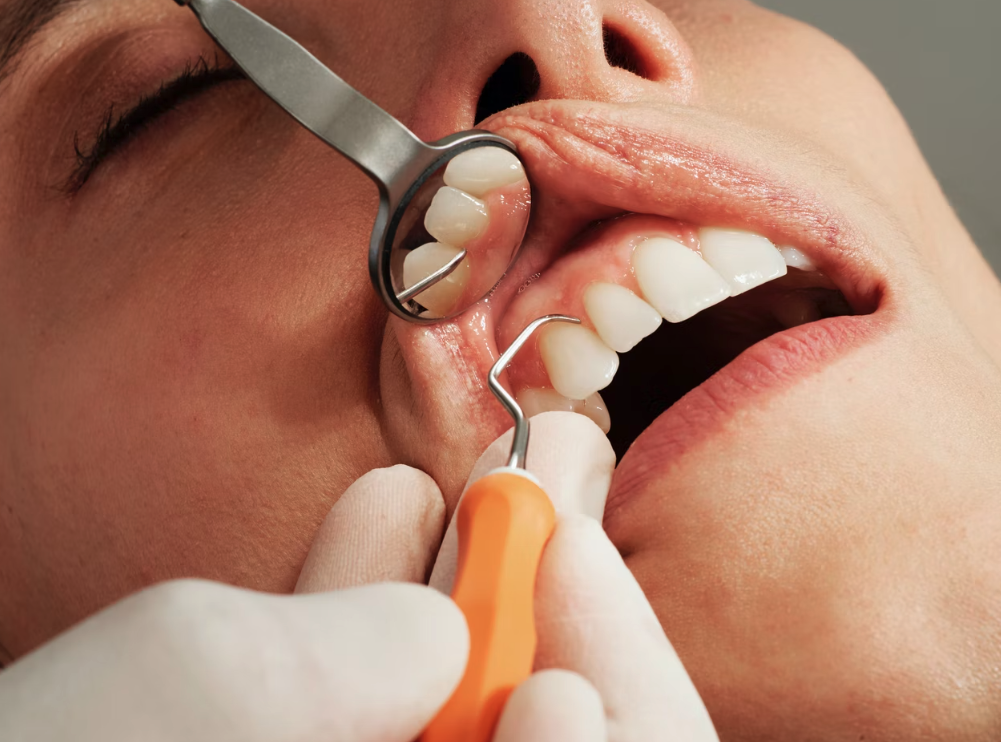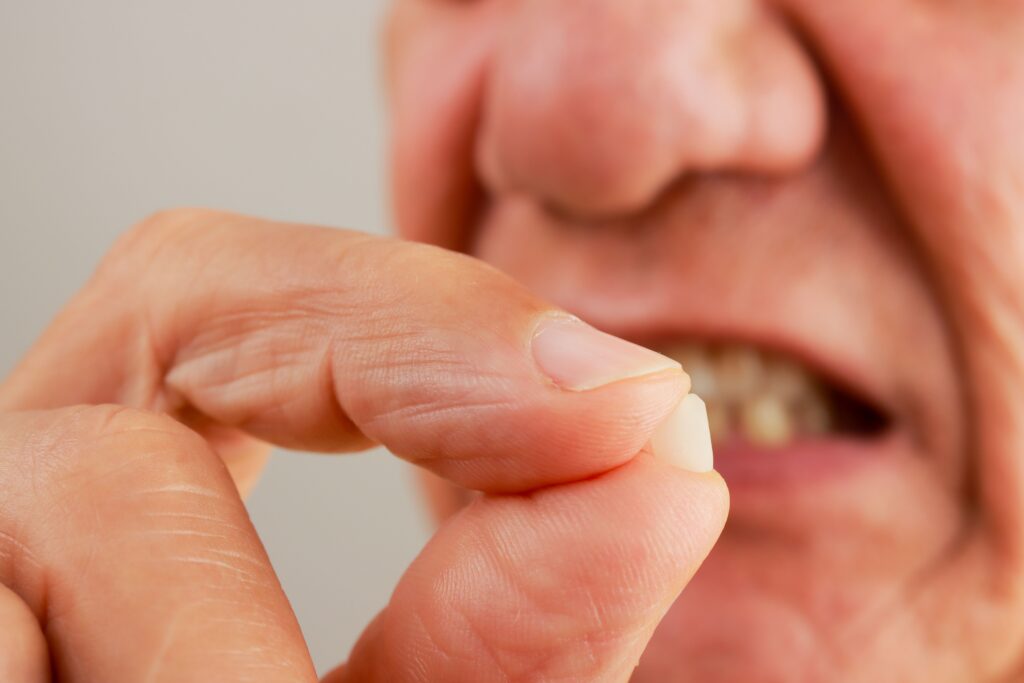Everyone knows that fluoride and oral hygiene go together… but why? What is fluoride, and how does it protect your teeth? Maybe you haven’t given a moment’s thought to such questions, but if you’re the curious type, read on.
What is fluoride?
Fluoride is a simple form of the element fluorine, which naturally exists in the earth’s crust, in water, and even in the air. Fluorine is related to elements like chlorine, which is used to sanitize pools, and iodine, which is often added to table salt. While your body can obtain some fluoride from foods like green beans, raisins, and pickles, most people think of it primarily as an ingredient in dental care products or an additive to tap water.
How does fluoride protect your teeth?
Fluoride works in multiple ways. First, fluoride changes the composition of tooth enamel, making it more effective at fighting acid. This is important because cavities form when the acid created by bacteria in your mouth eats away at the enamel, creating small holes or grooves in the enamel. Second, fluoride can help repair damage to your teeth in a process known as remineralization. In this case, fluoride actually puts minerals back into tooth enamel, hardening the spots tooth decay has weakened. Finally, fluoride also inhibits plaque’s ability to produce the acid that causes tooth decay.
Fluoride that you ingest in foods strengthens enamel while your teeth are growing, but does little to repair damage from cavities. However, topical fluoride (in toothpaste, mouth rinses, or even drinking water) helps repair the tooth decay caused by acids and sugary foods and drinks.
Where can you get fluoride?
While fluoride is naturally present in foods and water, there’s typically not enough there to achieve the maximum dental health benefit. That’s why many communities add small amounts of fluoride to their drinking water supply.
Many dental care products—toothpastes and mouthwashes—contain low doses of fluoride to provide the health benefits described above, as well. Finally, your dentist may recommend fluoride treatments at routine cleanings and check-ups in order to help protect your teeth.
Fluoride is especially important for children, as it not only protects their baby teeth, it also strengthens the adult teeth that have yet to come in.
Of course, fluoride complements—not replaces—a good oral hygiene routine. There’s no substitute for brushing twice daily and flossing every day, as well as visiting your dentist twice a year for professional cleanings and exams.
Sources
What is Fluoride and How Does It Work? Dr. David Evans, DDS. April 15, 2016.
How does the fluoride in toothpaste prevent cavities? Is there any kind of ‘natural’ fluoride protection, or is it only in artificial compounds? Francine Van Meter and Mary Hayes, retrieved from “https://www.scientificamerican.com/article/how-does-the-fluoride-in/” on April 19, 2017.
How does fluoride work? Reviewed by Steven Dowshen, MD in October 2014. Retrieved from “http://kidshealth.org/en/kids/fluoride.html/” on April 19, 2017.


